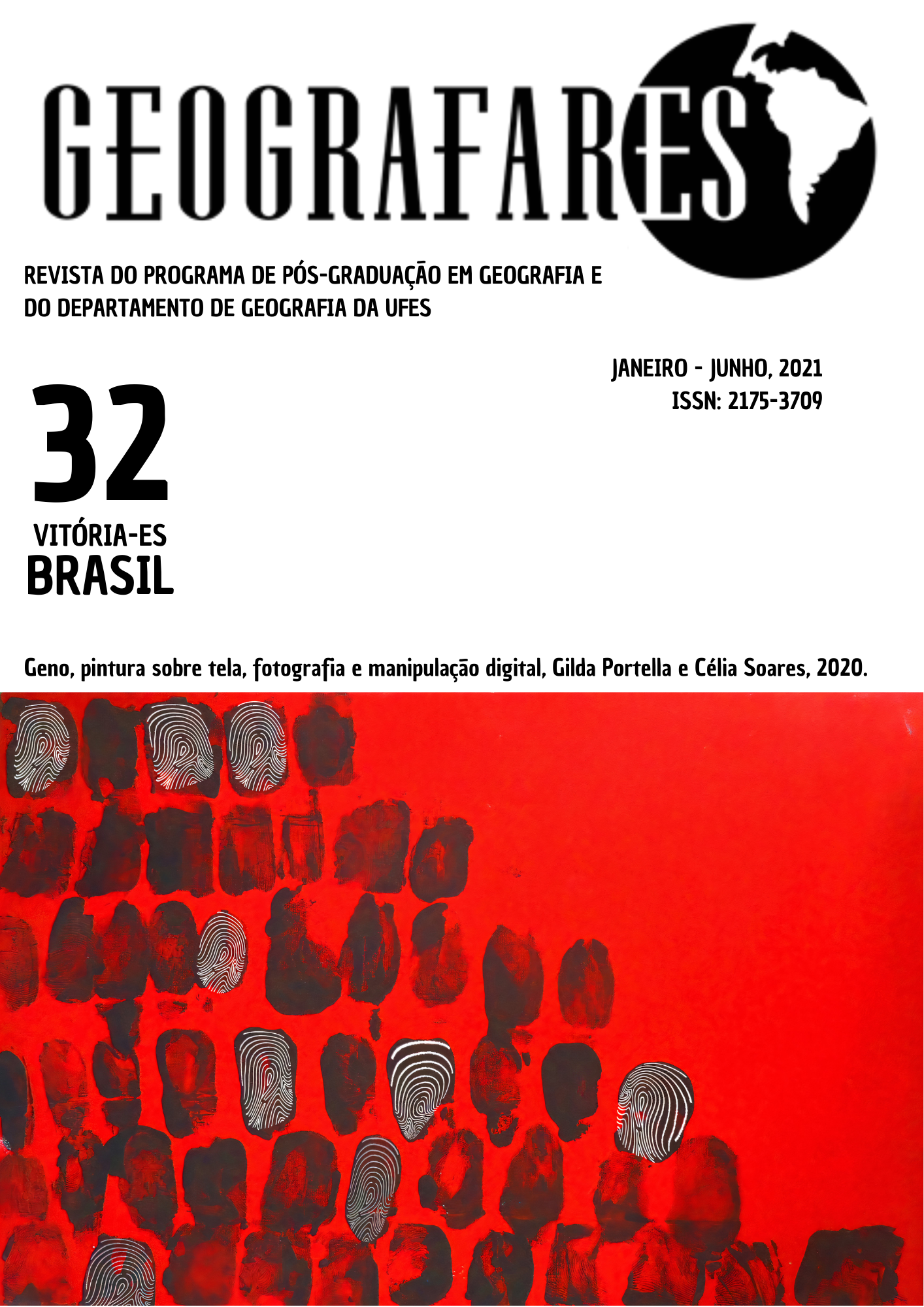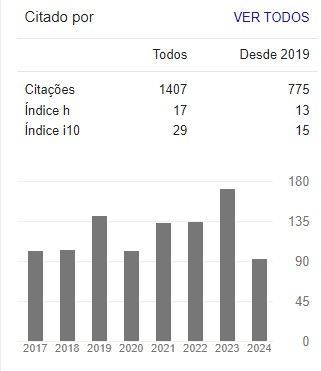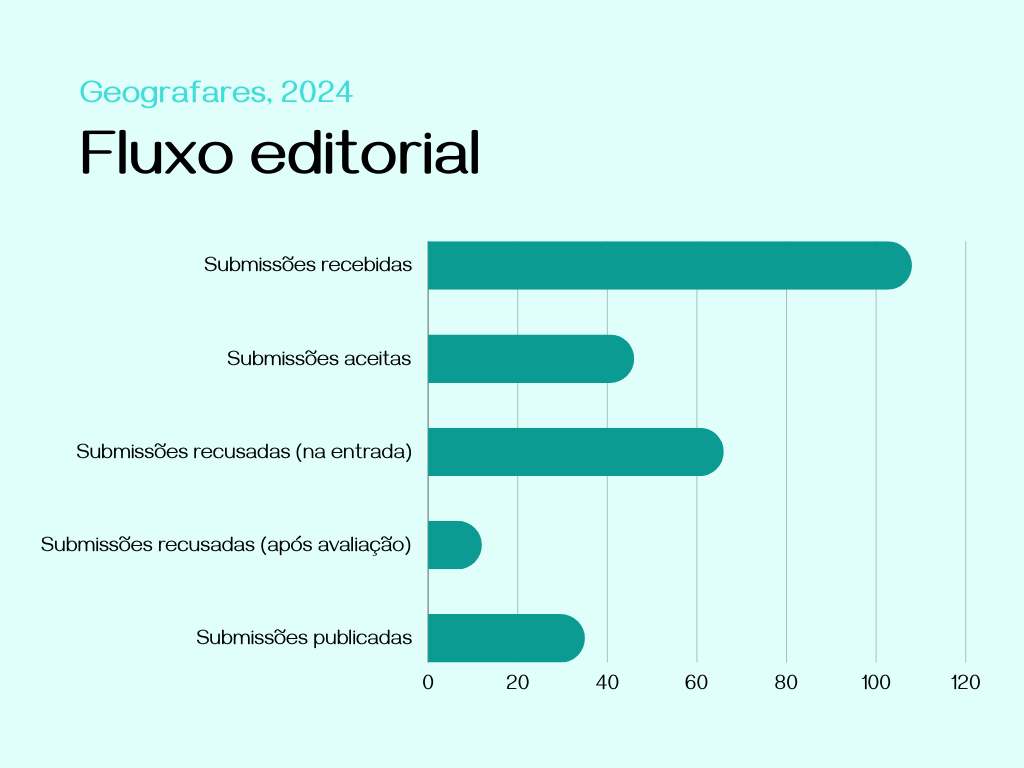Léon Metchnikoff and the building of a geographical evolutionary model: the great historical rivers
os grandes rios históricos
DOI:
https://doi.org/10.47456/geo.v1i32.31374Keywords:
Geography, Anarchism, Léon Metchnikoff, Geographical TheoryAbstract
This article, which takes a contextual approach as a method, analyzes the book La Civilisation et les grands fleuves historiques written by the anarchist geographer Léon Metchnikoff, which proposes a geographical and historical model of interpretation for the human evolution. Based on clear theoretical assumptions, many of which are common to É. Reclus and P. Kropotkin, Metchnikoff divides his interpretive model into three major evolutionary stages. The analysis aims to elucidate his methodological statements, as well as the three stages of his theory. This study is justified by the impact of Civilisation on the human sciences, its fraternal nature and to question the interpretations that reaffirm geography as an eminently empirical science. As a result, one can identify the development of a geography capable to problematizing common senses of the time, notably European views on the East.
Downloads
References
ARRIGHI, Giovanni. Adam Smith em Pequim. São Paulo: Bomtempo, 2008.
FERRETTI, Federico. “De l’empathie en géographie et d’un réseau de géographes: la
Chine vue par Leon Metchnikoff, Élisée Reclus et François Turretini” in Cybergeo,
documento 660, DOI: 10.400/cybergeo.261277, 2013.
___________, Federico. Anarchici ed editori. Milão: Zero in condotta, 2011.
___________, Federico. Il mondo senza mappa. Milão: Zero in condotta, 2007.
KRAUSZ, T. Reconstruindo Lênin – uma biografia intelectual. São Paulo: Boitempo, 2017.
KONISHI, Sho. Anarchist modernity. Londres: Harvard Uiversity Press, 2013.
KROPOTKIN, P. Il mutuo apoggio – fattore dell’evoluzione. Bolonha: Libreria internazionale di avanguardia, 1950.
LATOUR, Bruno. Jamais fomos modernos. São Paulo: Editora 34, 1994.
METCHNIKOFF, Léon. La civilisation et les grands fleuves historiques. Paris: Librarie
Hachette et cie., 1889.
______________, Léon. Evolution and Revolution. in Contemporary Review, vol. 50, p. 412-437, 1886.
PINTO, Pedro A. O modelo heurístico orgânico na obra de F. W. J. Schelling e sua recepção na Rússia do início do século XX. Pandaemonium, São Paulo, v. 22, n. 37, p. 377-400, 2019.
PELLETIER, Philippe. Géographie & anarchie. Mayenne: Éditions du monde libertaire &
Éditions Libertaires, 2013.
__________, Philippe. Élisée Reclus: géographie et anarchie. Paris: Les Éditions du
monde libertaire, 2009.
PLEKHÂNOV, G. V. Л. И. Мечников (Некролог) in Сочинения. Moscou / Petrogrado:
Государственное Издательство, 1923 [1888].
___________, G. V. Die zivilisation und die grossen historischen Flüsse in Die Neue Zeit,
nº 14, 1891.
PRÉPOSIET, Jean. História do anarquismo.Lisboa: Edições 70, 2007.
RECLUS, Élisée. La Chine et la diplomatie européenne. Paris: Éditions de l’Humanité
Nouvelle, 1900.
ROGERS, James A. Charles Darwin and Russian Scientists. In The Russian Review, v. 10, n. 4, p. 371-383, 1960.
SAWER, M. Marxism and the question of Asiatic mode of production. The Hague: Martinus Nijhoff, 1977.
TUATHAIL, Gearóid Ó. Critical geopolitics. Minneapolis: University of Minnesota Press,
WITTFOGEL, K. A. Oriental Despotism. Nova York: Vintage Books, 1981.
WHATMORE, Sarah. Hybrid Geographies. Londres: Sage, 2002.
WHITE, James D. “Despotism and anarchy: the sociological thought of L. I. Metchnikoff” in
The Slavonic and east European review, vol. 54, nº 3, 1976.
Downloads
Published
How to Cite
Issue
Section
License
Copyrights Declaration
Authors who publish in the journal agree with the following terms:
- Authors will keep their copyrights and grant the journal the right to their first publishing, simultaneously licenced under Creative Commons Attribution License which allows sharing their work with authorship recognition and initial release through this journal.
- Authors may sign additional contracts separately diffusing a non-exclusively version of the paper published in this journal (i.g. publishing in institutional repository or as a book chapter), once citing the authorship and initial release through this journal.
- Authors are encouraged to publicize and diffuse their paper online, for example onto institutional repositories or on their personal websites.



























